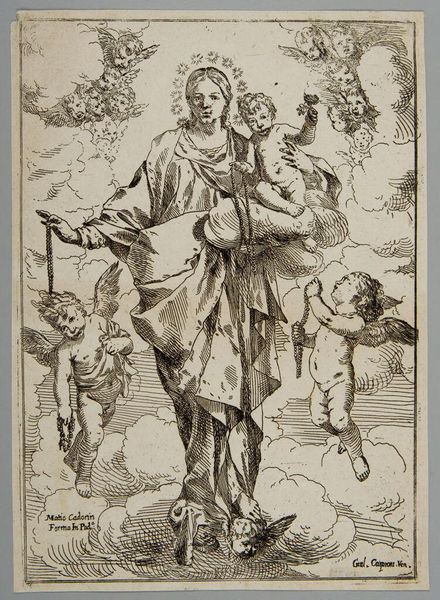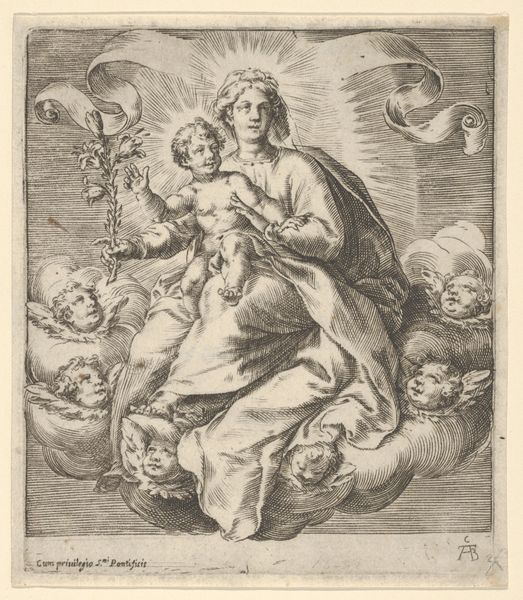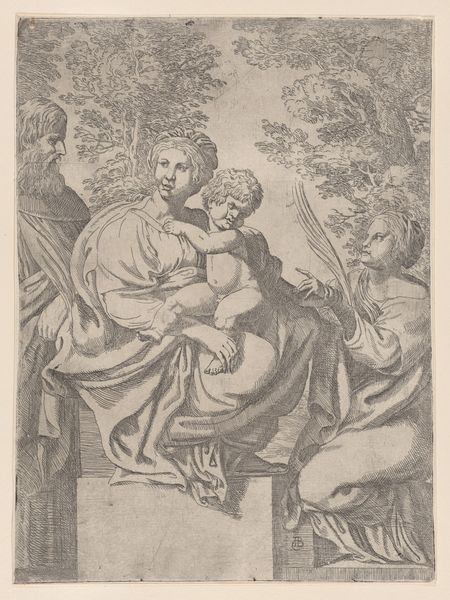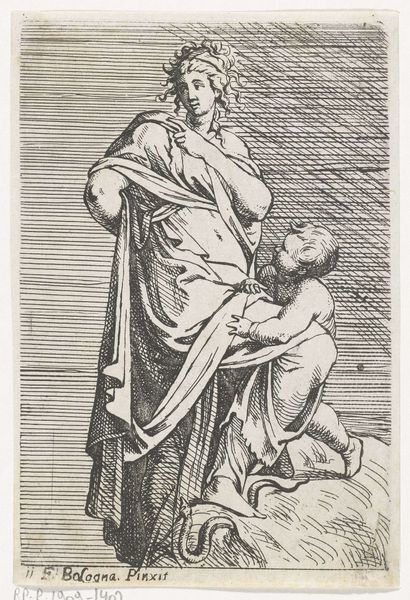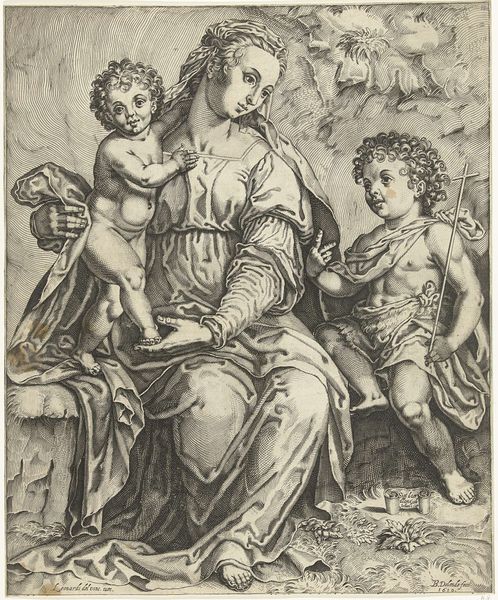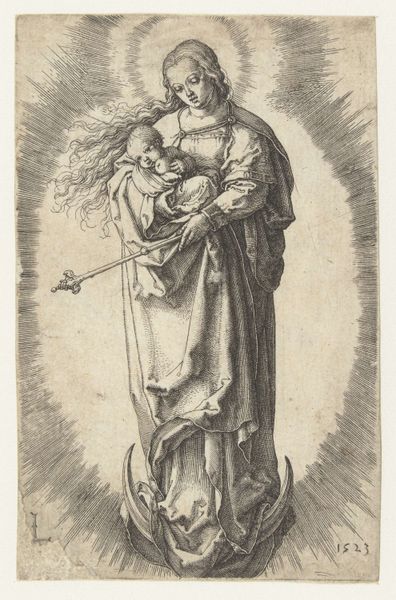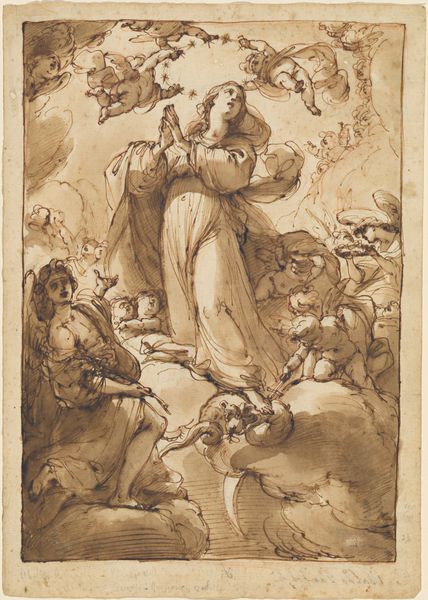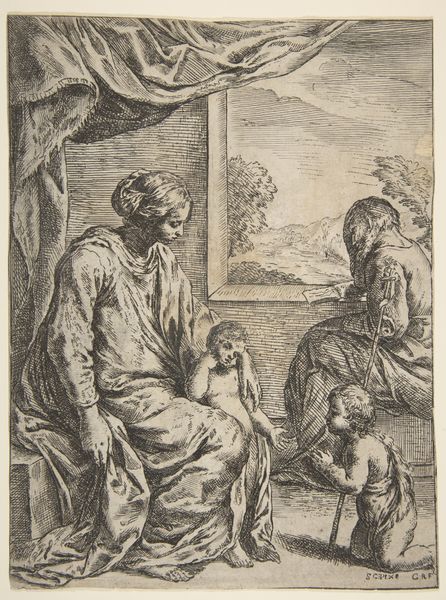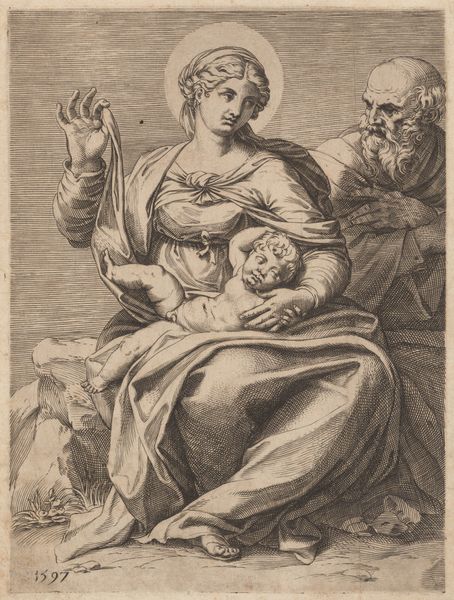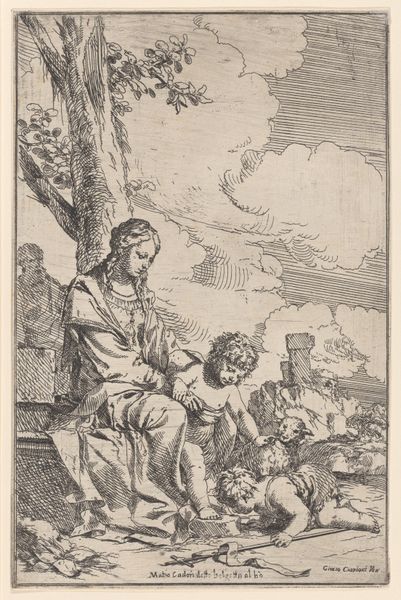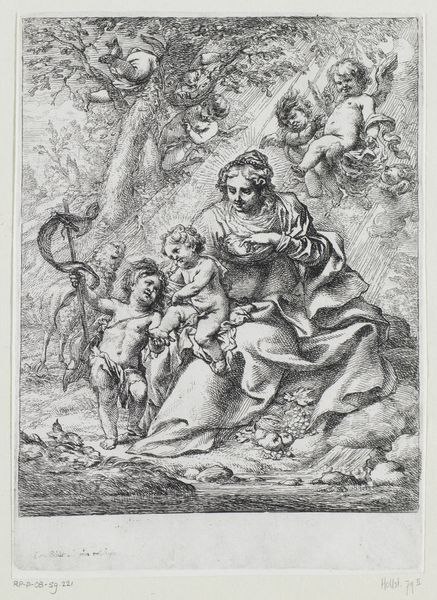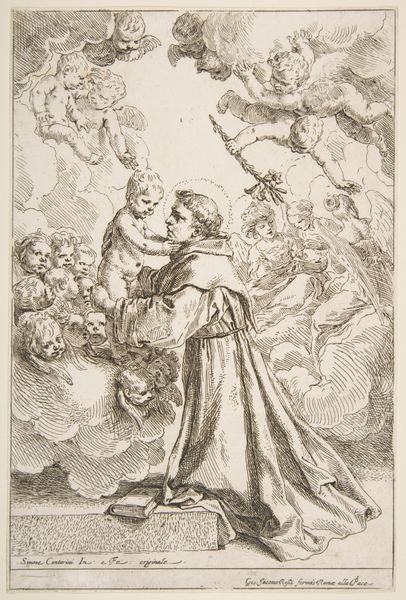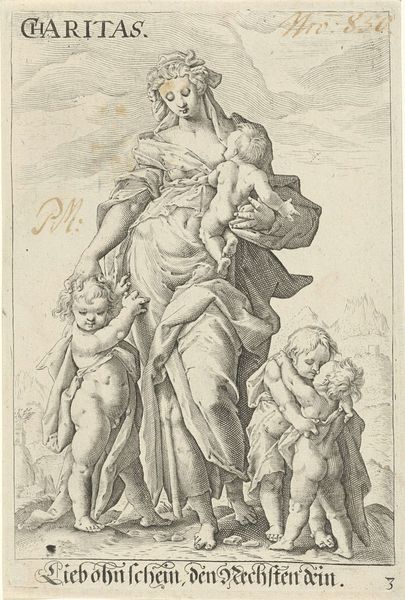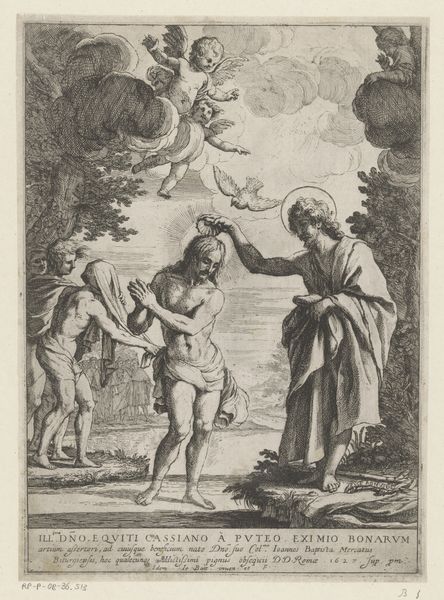
drawing, print, ink, engraving
#
drawing
#
allegory
#
baroque
# print
#
pen illustration
#
pen sketch
#
figuration
#
ink
#
engraving
Dimensions: height 227 mm, width 162 mm
Copyright: Rijks Museum: Open Domain
Giulio Carpioni made this print, Maria van de Rozenkrans, in seventeenth-century Venice. The Virgin Mary, holding the infant Jesus, is surrounded by cherubic figures. She is also holding a rosary; an object that has immense social and religious significance within the Catholic church. Prints such as this played a crucial role in Venice at the time, both as devotional objects and as a way of spreading artistic ideas. Venice was a Republic in the 17th century, ruled by powerful merchant families. These families were often patrons of the arts, and so the art produced at the time often represents the values and beliefs of these social elites. Giulio Carpioni’s work shows how religious imagery was used to reinforce social order, with the Virgin Mary representing the ultimate symbol of maternal virtue. To understand this print further, it's essential to look at its visual codes. The Rosary in Maria's hand and the surrounding cherubs are signifiers that help us understand its meaning. By researching such imagery and the social context in which it was made, we can begin to appreciate its complexities.
Comments
No comments
Be the first to comment and join the conversation on the ultimate creative platform.
